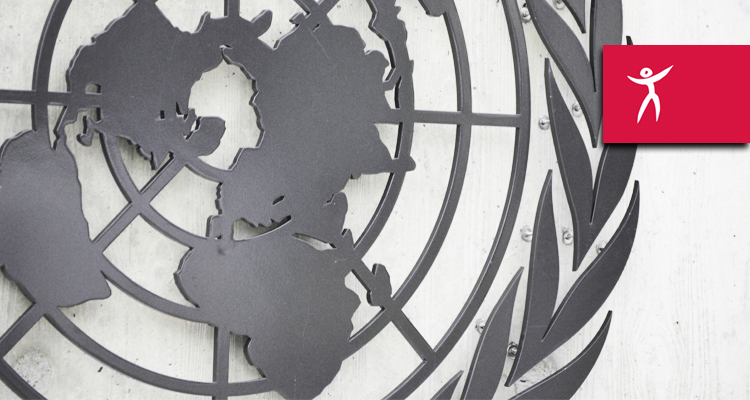In a statement delivered today, ISHR reminded the Human Rights Council of the importance of responding in a timely and consistent manner to serious human rights situations.
The remarks, copied below in full, recalled the objective criteria to be considered in determining whether and how the Council should take action on a country situation of concern. Those criteria were outlined in a cross-regional joint statement delivered by Ireland on behalf of 32 States at the close of the 32nd session last June. These objective criteria include:
- Non-cooperation or insufficient cooperation with the UN human rights mechanisms
- Acknowledgement of challenges and requests for assistance by the State itself
- The treatment of humanitarian actors, human rights defenders and the media, and
- Calls for action by the UN High Commissioner for Human Rights, Special Procedures or treaty body experts or mechanisms
ISHR’s Director for Human Rights Council Advocacy, Michael Ineichen, reiterated the importance of addressing serious human rights situations in a sustained, principled manner.
‘From our discussions with defenders, we know the situation in countries like Bahrain, China, Egypt, Russia and Venezuela is deteriorating. What’s more, the UN experts the Council has mandated to monitor fundamental freedoms know it too – and have spoken out, despite facing efforts from those same states to hamper, delegitimise, or attack their ability to do so.’ Just today, a group of UN human rights experts expressed serious concern at the worsening persecution of human rights defenders in Bahrain.
‘ISHR is concerned at the lack of action on States where, applying objective criteria, the human rights situation demands attention,’ Ineichen said.
‘This is not to say that these countries were not mentioned at all. Germany called clearly for the release of defenders in China, Denmark focused on the ongoing detention of Abdulhadi Al-Khawaja in Bahrain, and Canada highlighted dangerous attacks against members of the LGBTI community in Russia. But ad hoc statements are no longer sufficient responses to the grave challenges facing human rights defenders in these countries’.
The joint statement delivered by Ireland on behalf of 32 States last June commits those States to support Council action on situations that fulfil the objective criteria.
Sarah M Brooks, human rights advocate at ISHR, noted that over the past year the UN High Commissioner and several Special Procedures have raised serious concerns about the situation in the Philippines. She added, ‘The joint statement delivered on 7 June by Iceland is a step in the right direction, but we would have expected more countries to support this initiative, particularly in light of the commitments of the Philippines as a Council member’.
Ineichen concluded, ‘The reluctance to take action on countries who fulfil these key criteria undermines the Council’s credibility and emphasises the need for principled leadership. We are ready to work with any State prepared to step up to this opportunity’.
For more information, contact Michael Ineichen at m.ineichen[at]ishr.ch or follow Michael and Sarah on Twitter: @IneichenM and @sarahmcneer.
Photo credit: UN Photo/Jean-Luc Ferré
Full text of statement as delivered:
Statement at 35th session of the Human Rights Council
Item 4: General Debate
Thank you Mr. Vice-President.
A joint statement signed by 32 countries delivered just one year ago lays out criteria that indicate when the Council should consider action on a situation of concern. Non-cooperation is one of these criteria; others include:
- Acknowledgement of challenges by the State itself
- The treatment of humanitarian actors, defenders and the media, and
- Calls for action by UN or regional experts or mechanisms
There has been some movement to this end. In the joint statement on the Philippines delivered at this session, nearly 30 countries raised concern about impunity for violence and killings, referencing statements by the High Commissioner and Special Procedures.
Nonetheless, Council action based on national interests, rather than human rights principles, means that many situations which meet the above criteria will go unaddressed this session. For example:
- The High Commissioner has called on Bahrain to investigate the 23 May killings of five peaceful protesters. Human rights defenders and the media are subject to obstruction, surveillance, arbitrary detention and ill-treatment.
- It’s been nearly two years since the ‘July 9 crackdown’ in China. On 5 May, the OHCHR spokesperson reiterated dismay that, ‘despite numerous calls by UN human rights bodies’ the harassment of defenders and anyone expressing dissent continues.
- Venezuela is facing a human rights crisis. The Inter-American Commission has repeatedly condemned the repression of demonstrations, and the Office noted most recently on 20 May that the suppression of freedoms was ‘very alarming’.
We call on States – whether signatory to the aforementioned statement or not – to lead or support action by the Council on these and other situations that clearly fulfil the objective criteria.
Thank you.




